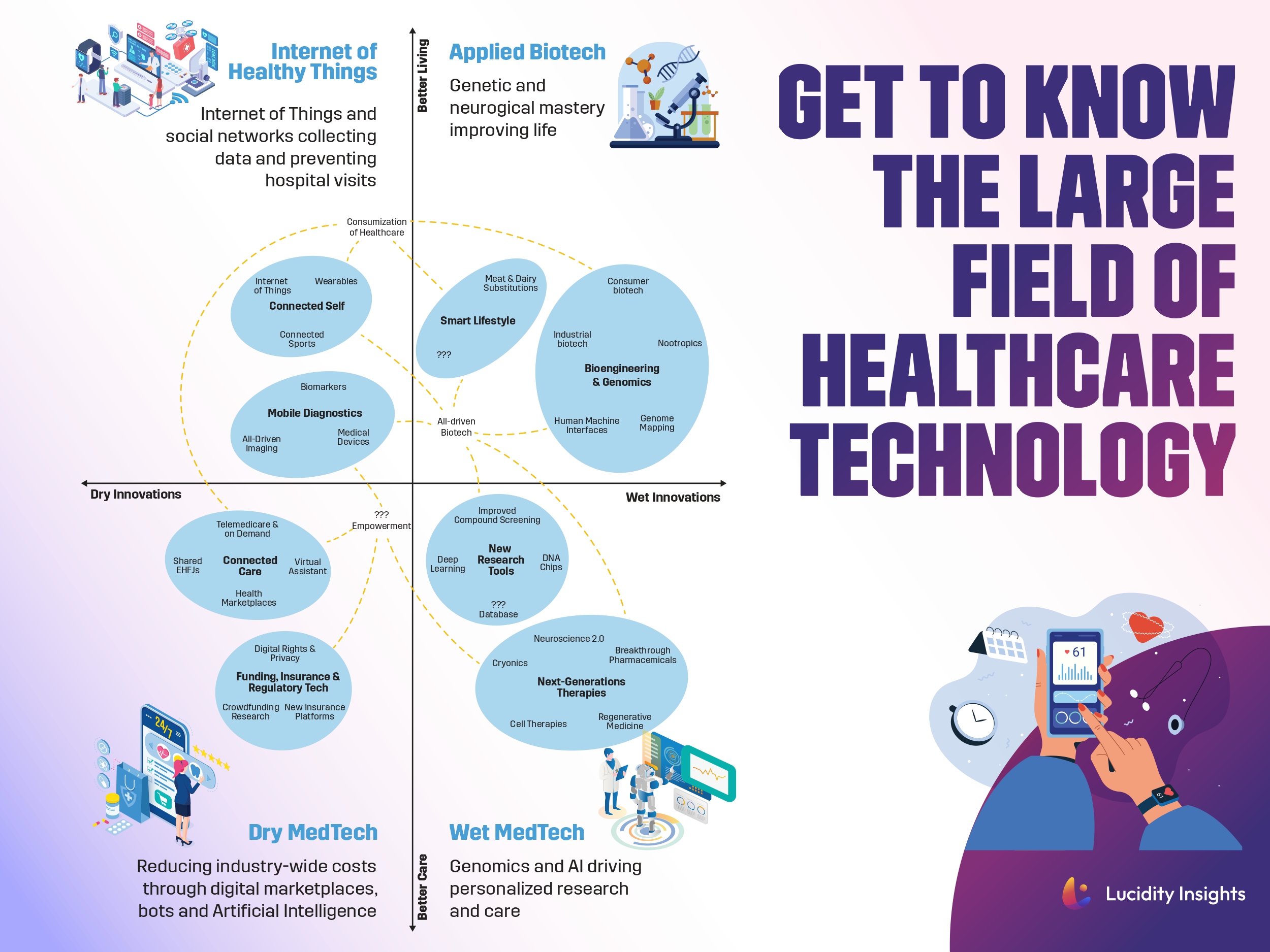The State of Healthtech
21 November 2023•
Healthcare technology, more commonly referred to as “healthtech”, refers to any technology utilized to improve the delivery, payment, and the consumption of care.
Healthtech, from a startup and investor standpoint tends to be more dominated by what we know as “Digital Health”. That’s because Healthtech is so broad, it includes many other major sub-sectors that are giants in their own right; these includes well-established sectors such as medtech (ie. medical devices), biotech (ie. “wet” tech, nanotechnology, etc.) and insurtech (ie. technology that works to improve for the insurance ecosystem). and systems, and the digitization of healthcare. For the purposes of this report, we dive more into “Digital Health”, as this is where startups mostly reside: at the intersection of health and digital technology.
What Is Healthtech?
Healthcare technology, more commonly referred to as “healthtech”, refers to any technology-enabled healthcare products or services that bolster the healthcare system. In essence, healthtech startups use technology to improve the delivery, payment, and the consumption of care. If that sounds broad, it’s because it is.
Healthtech can involve the entire value chain, from the development of new medical devices - also referred to as Medtech, which can involve everything from the development of next-generation diagnostic and imaging machines and robotics to the development of personalized wearables that use biosensors to gather health data. Biotechnology, “wet” tech and drug discovery also can fall under healthtech, which can involve complex and deep-tech research applications, from utilizing nanotechnology for tissue engineering and regenerative medical applications, or the discovery and development of new medicines and vaccines.
There is also the large field of Digital Health, which covers software and SaaS which might work on streamlining healthcare procedures and systems. Have you ever had a video appointment with your doctor? That’s tele-health, one of the fastest growing digital health sectors in our post-pandemic world. Under digital health we also include insurance claims processing, personalized healthcare apps such as those that track your sleep, diet, or hormonal cycles. It also includes startups working with blockchain technology to enhance data security and develop secure methods to transfer patient medical records, manage medical supply chains, and strengthen cybersecurity measures. It also includes digital marketplaces that help hospitals and healthcare providers hire medical professionals which have also gained steam in this arena.
 Infobyte: Get to Know the Large Field of Healthcare Technology
Infobyte: Get to Know the Large Field of Healthcare Technology
To read more about the transformative innovation of digital health in 2023 – read the full report here.
Next Read: The Digital Revolution of Healthcare

%2Fuploads%2Fhealthtech%2Fcover18.jpg&w=3840&q=75)